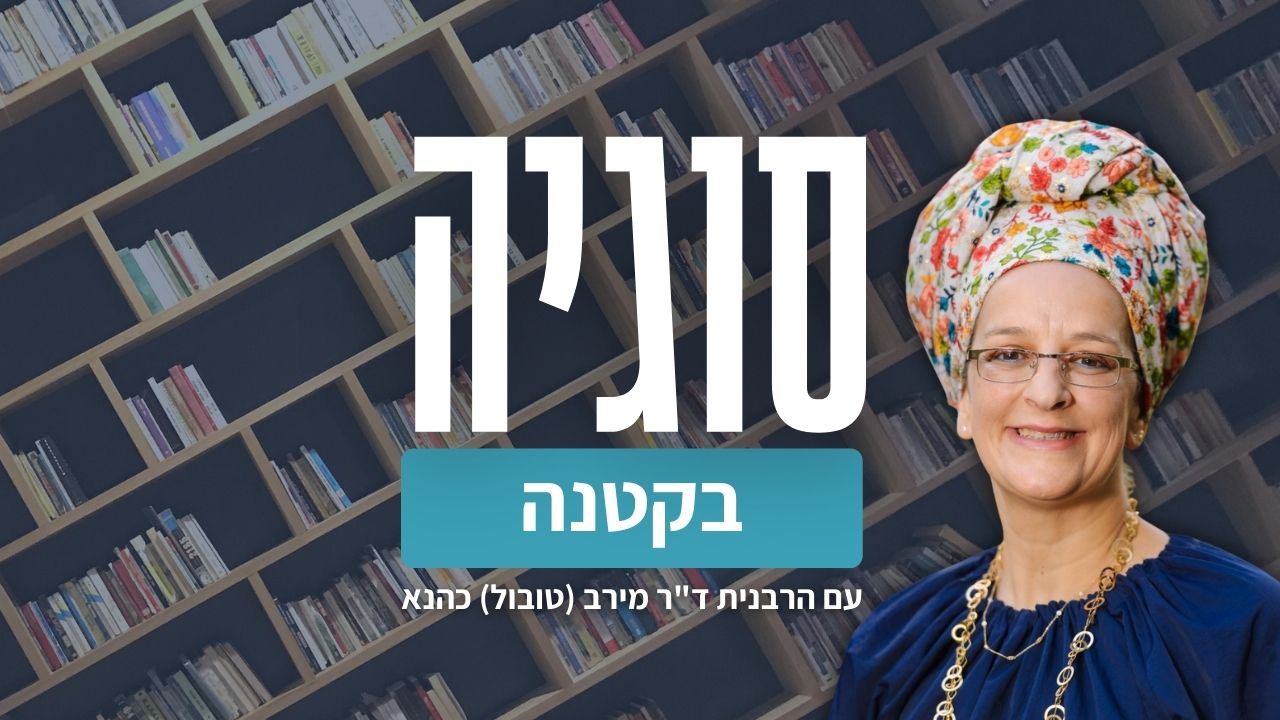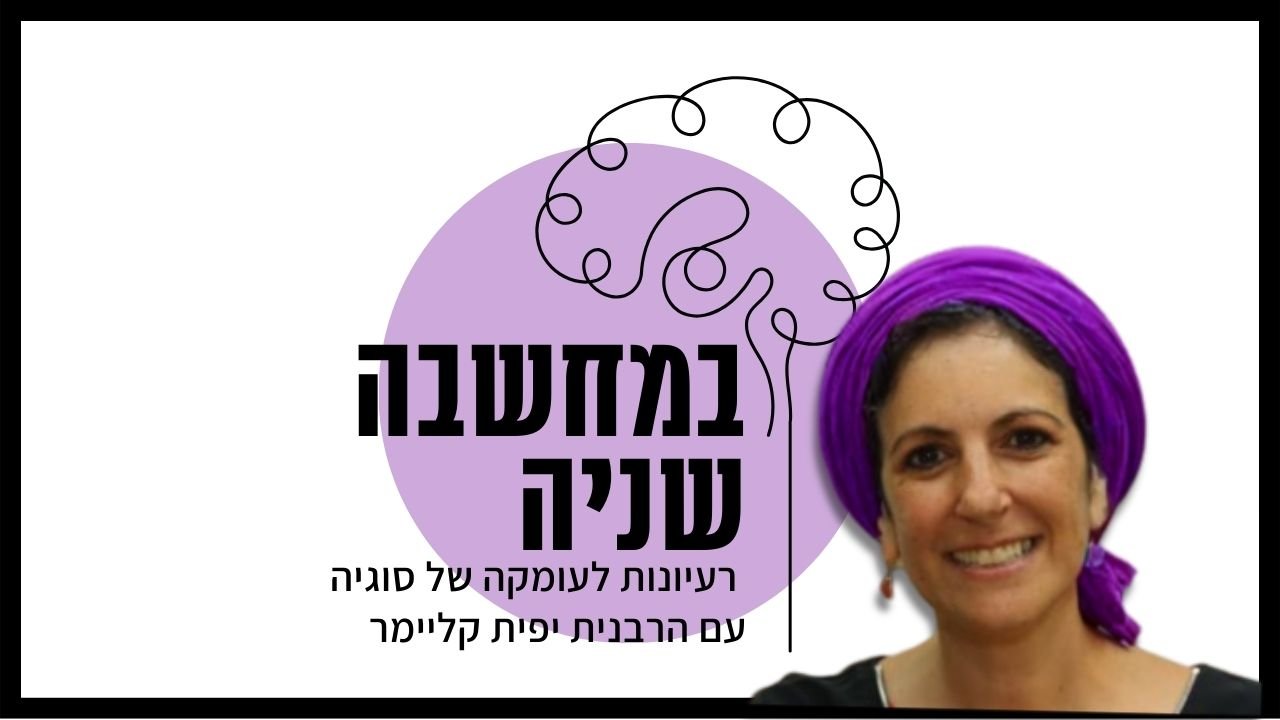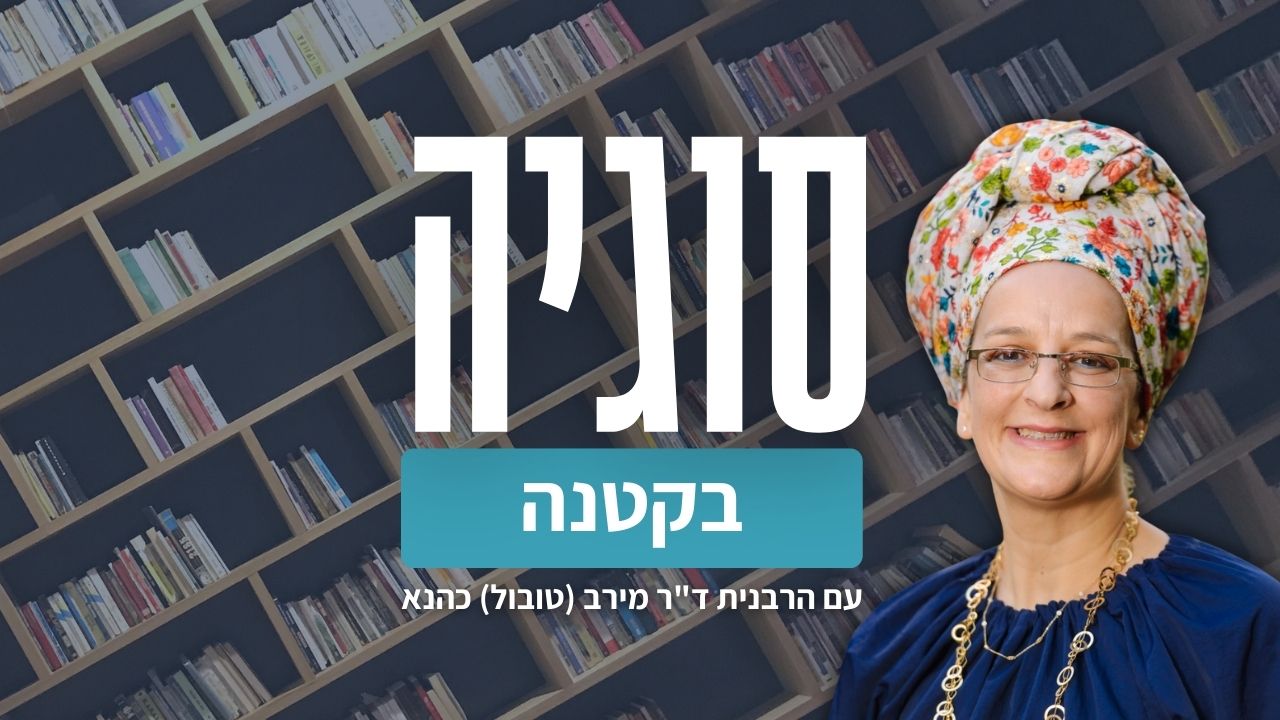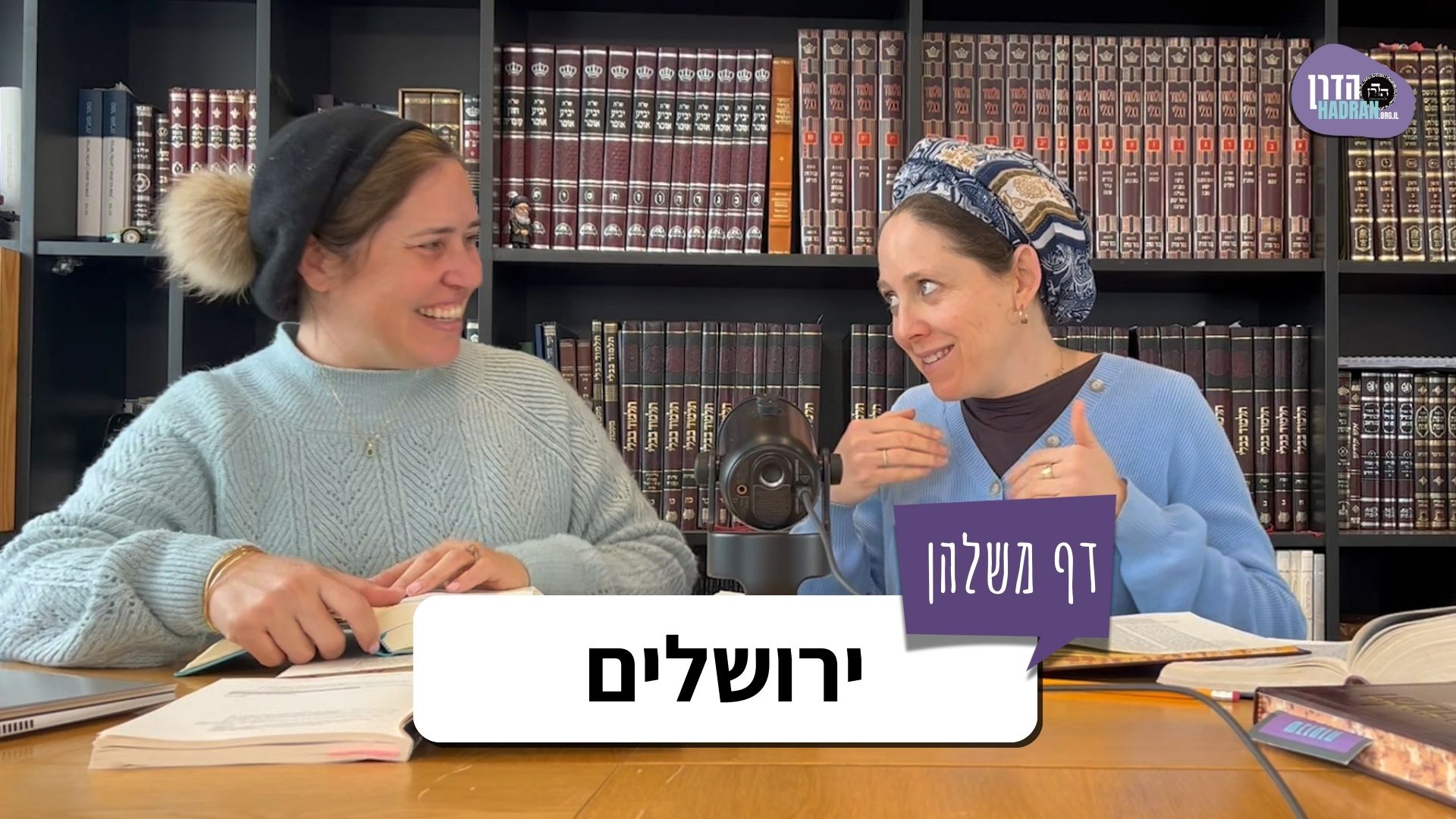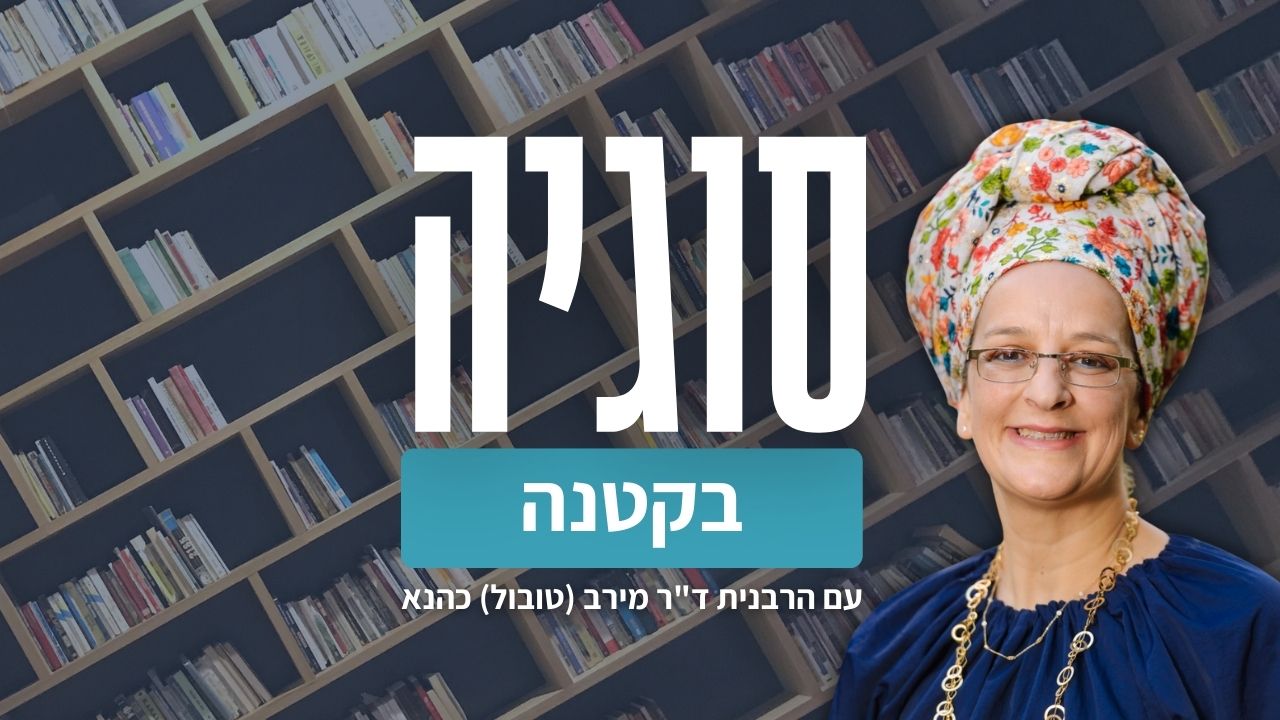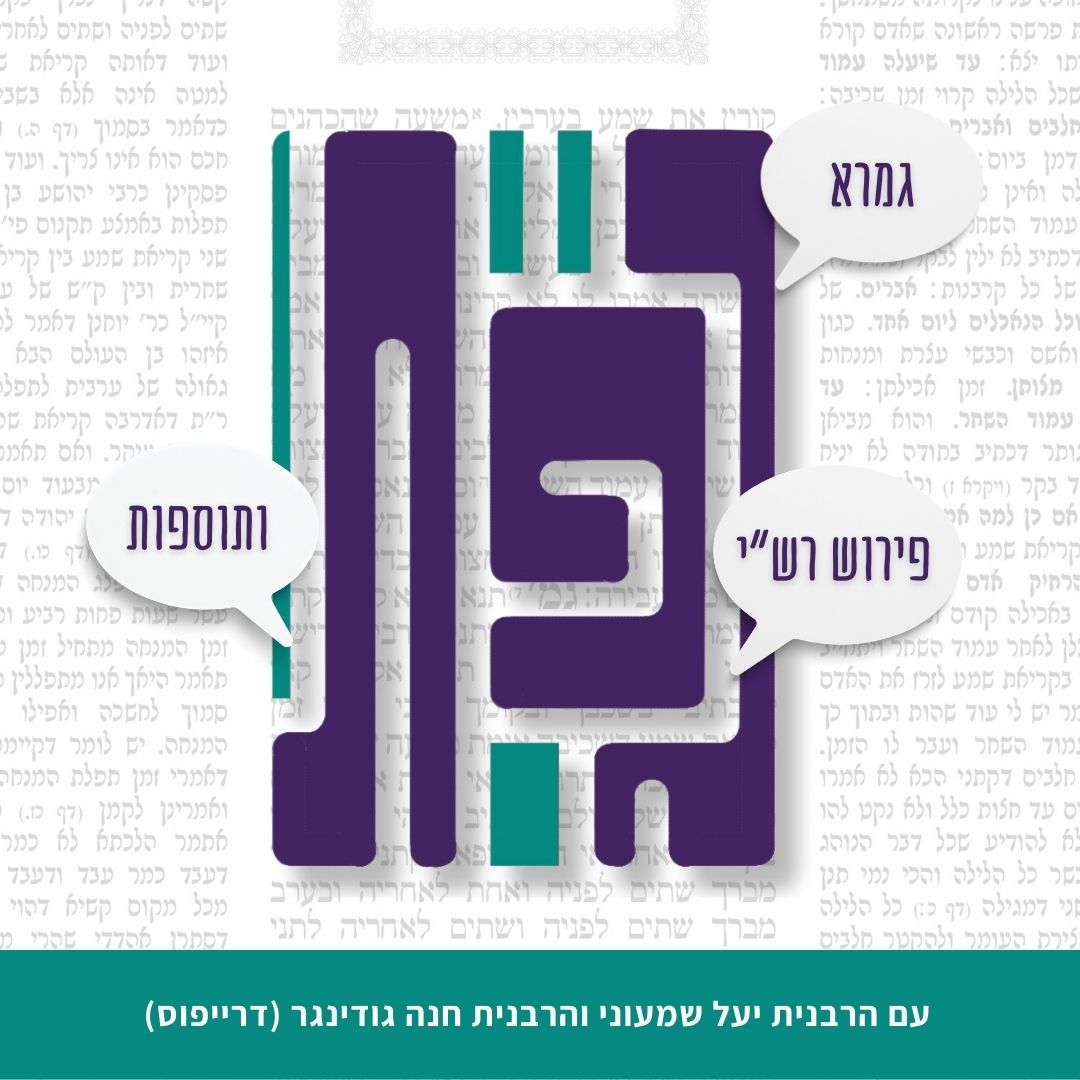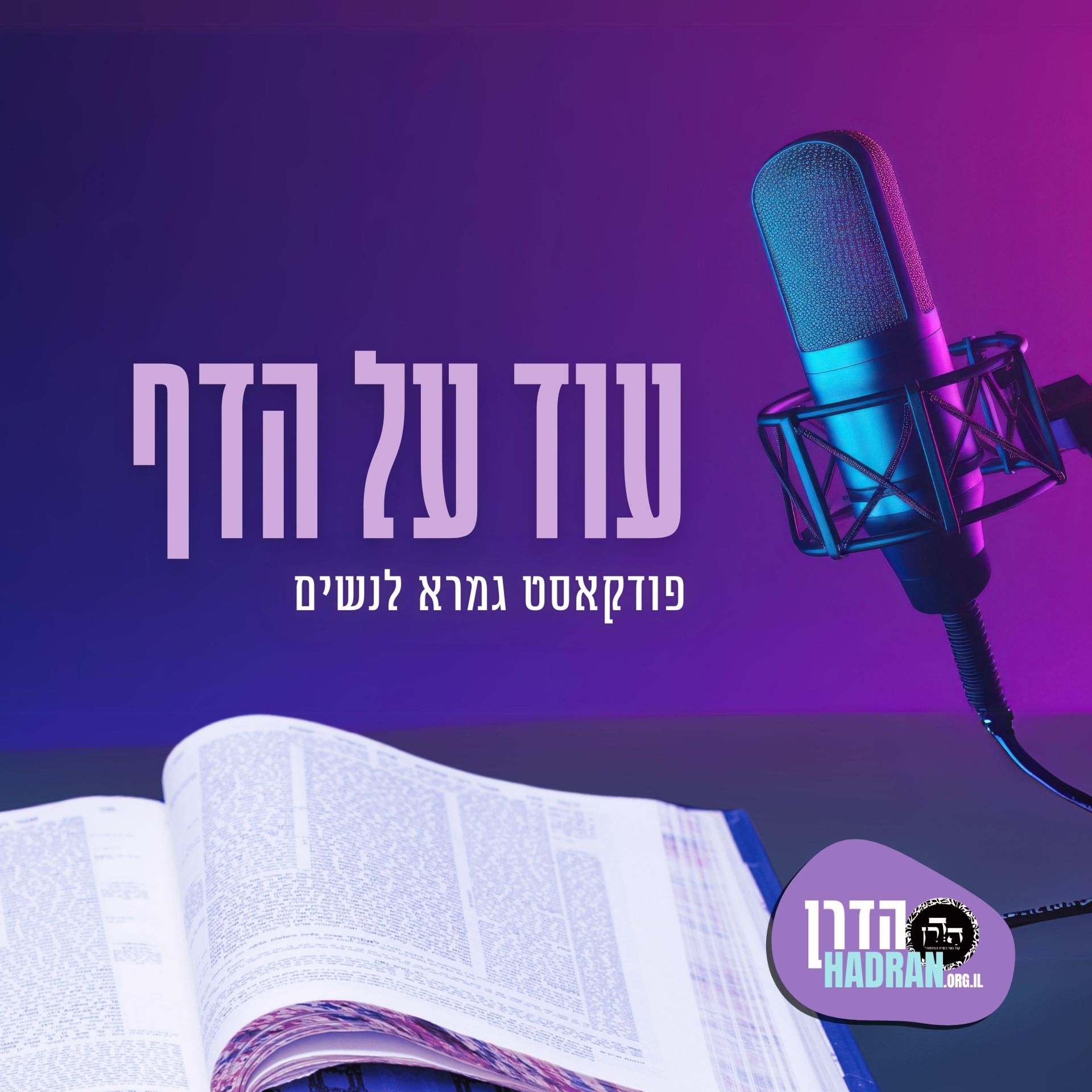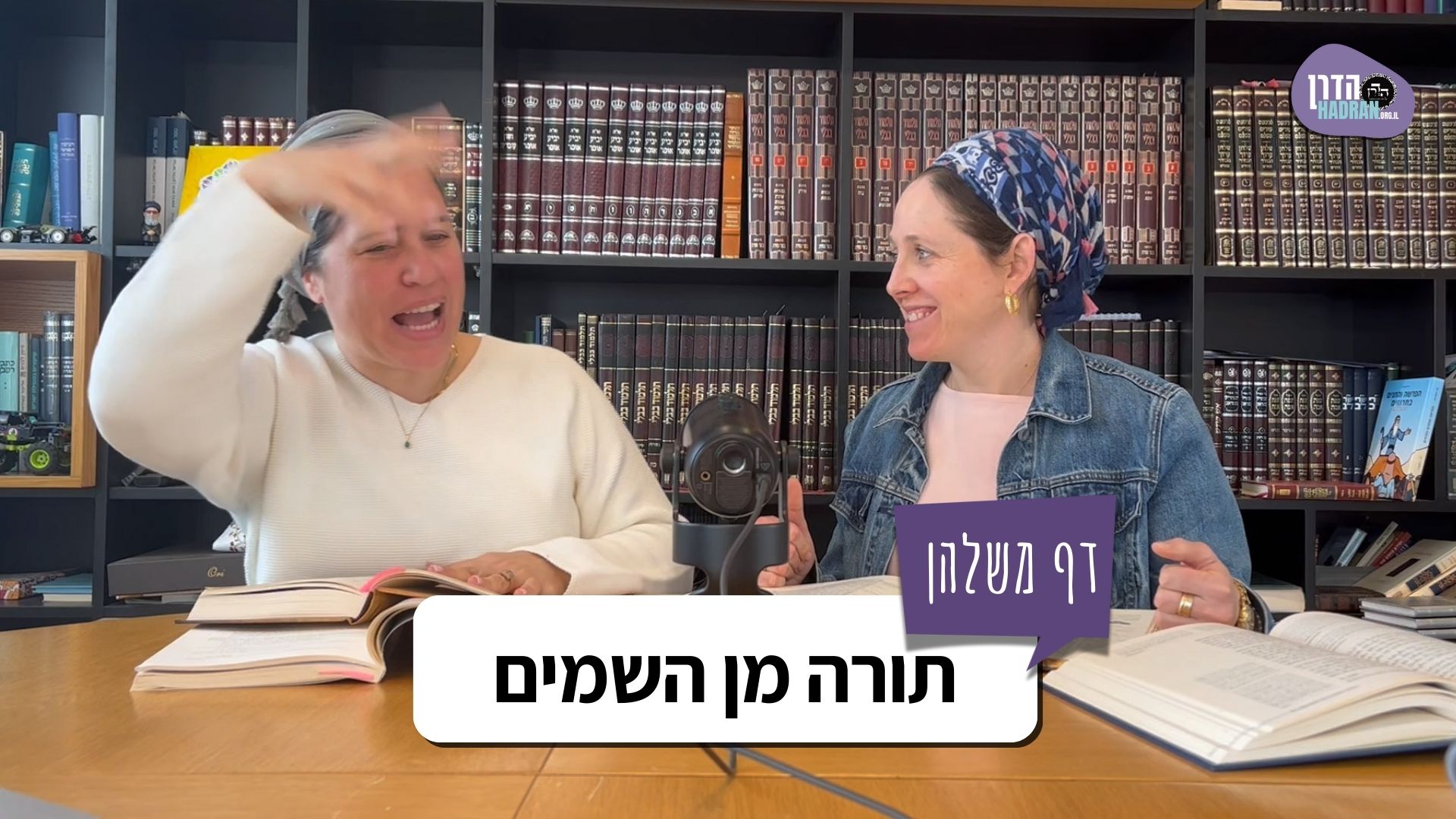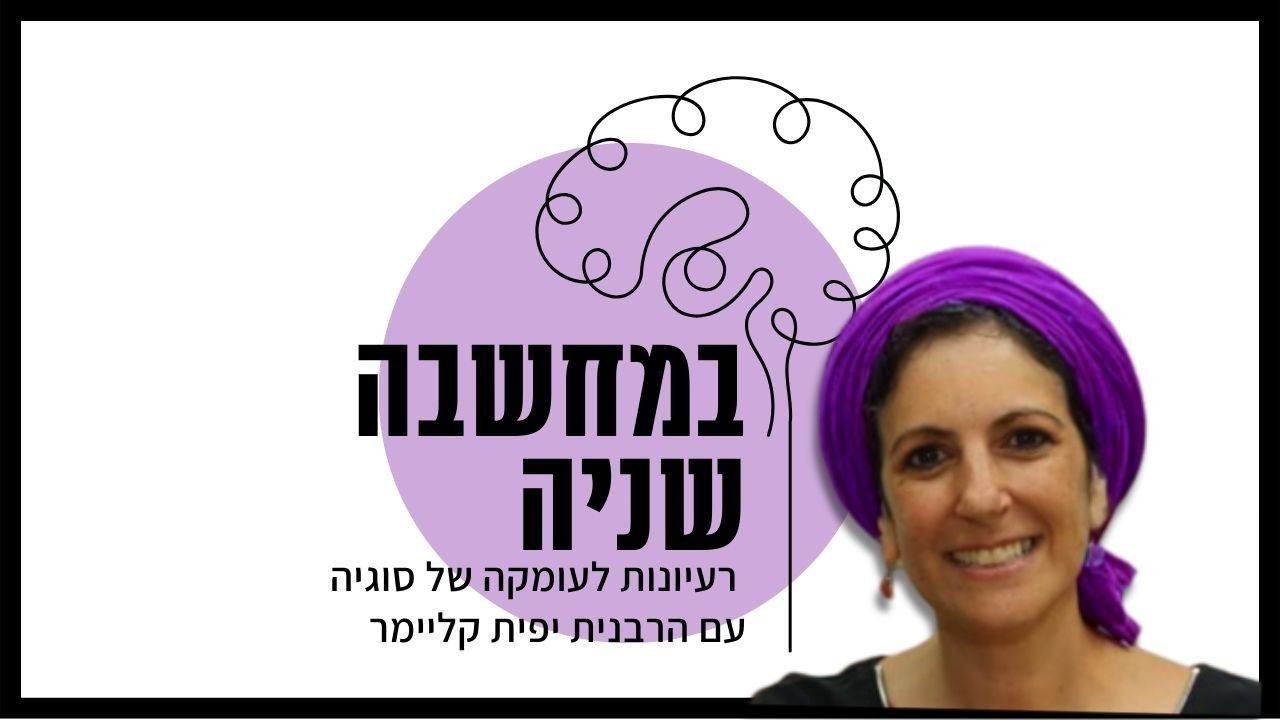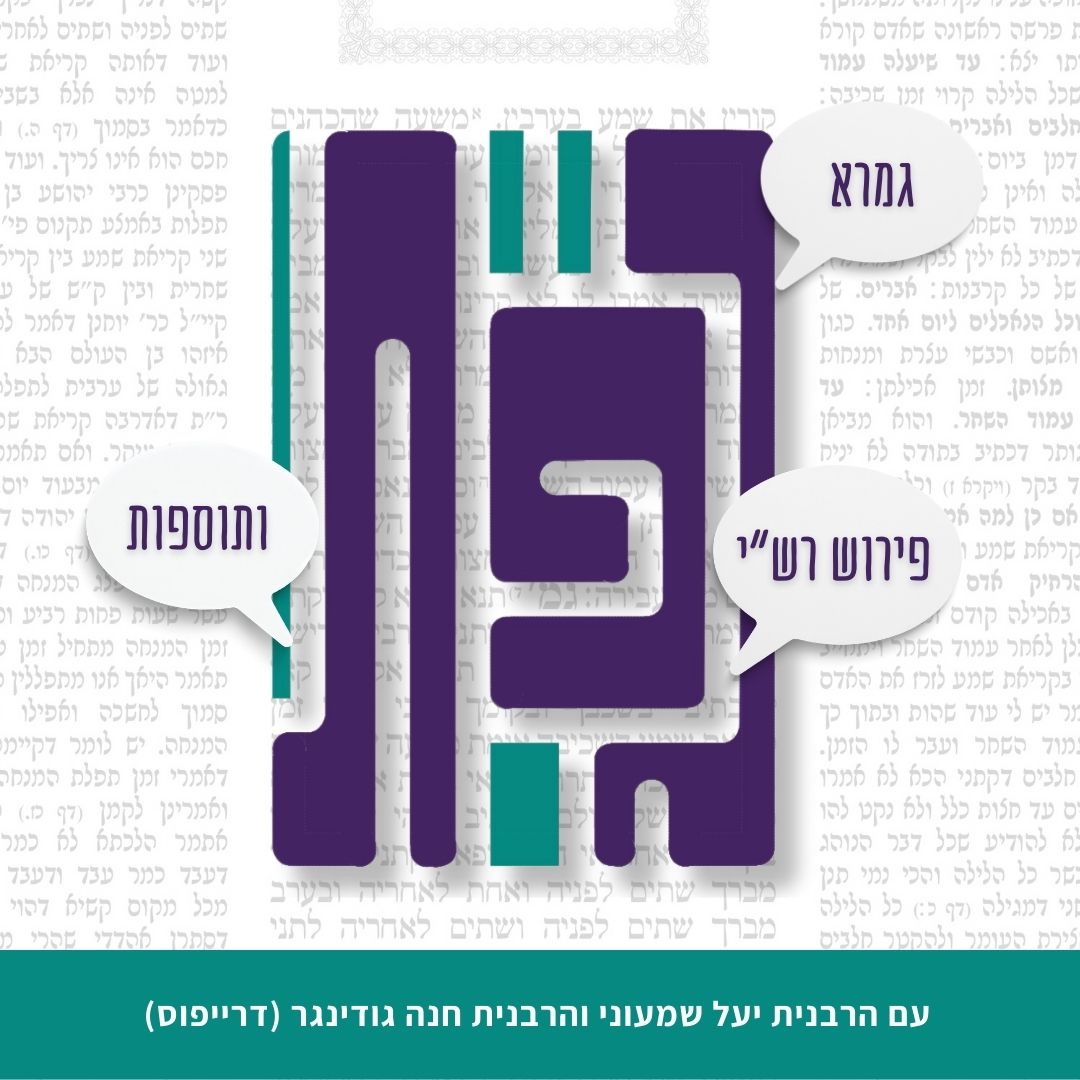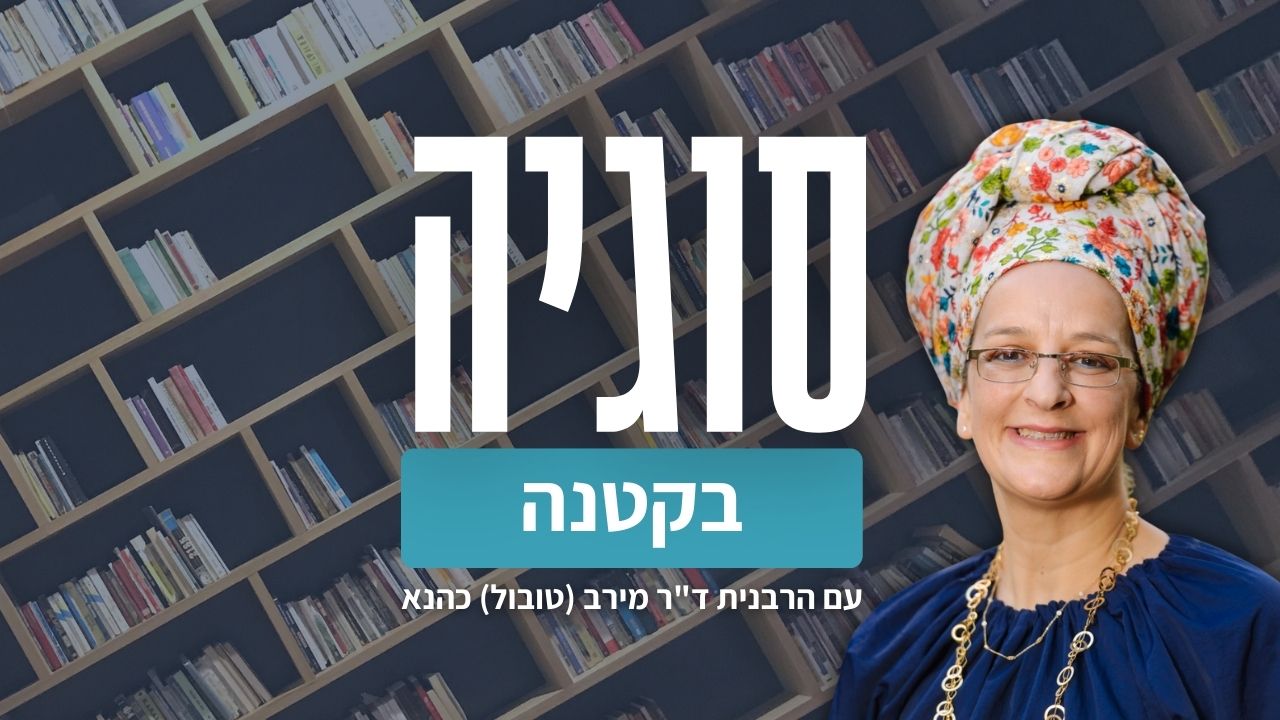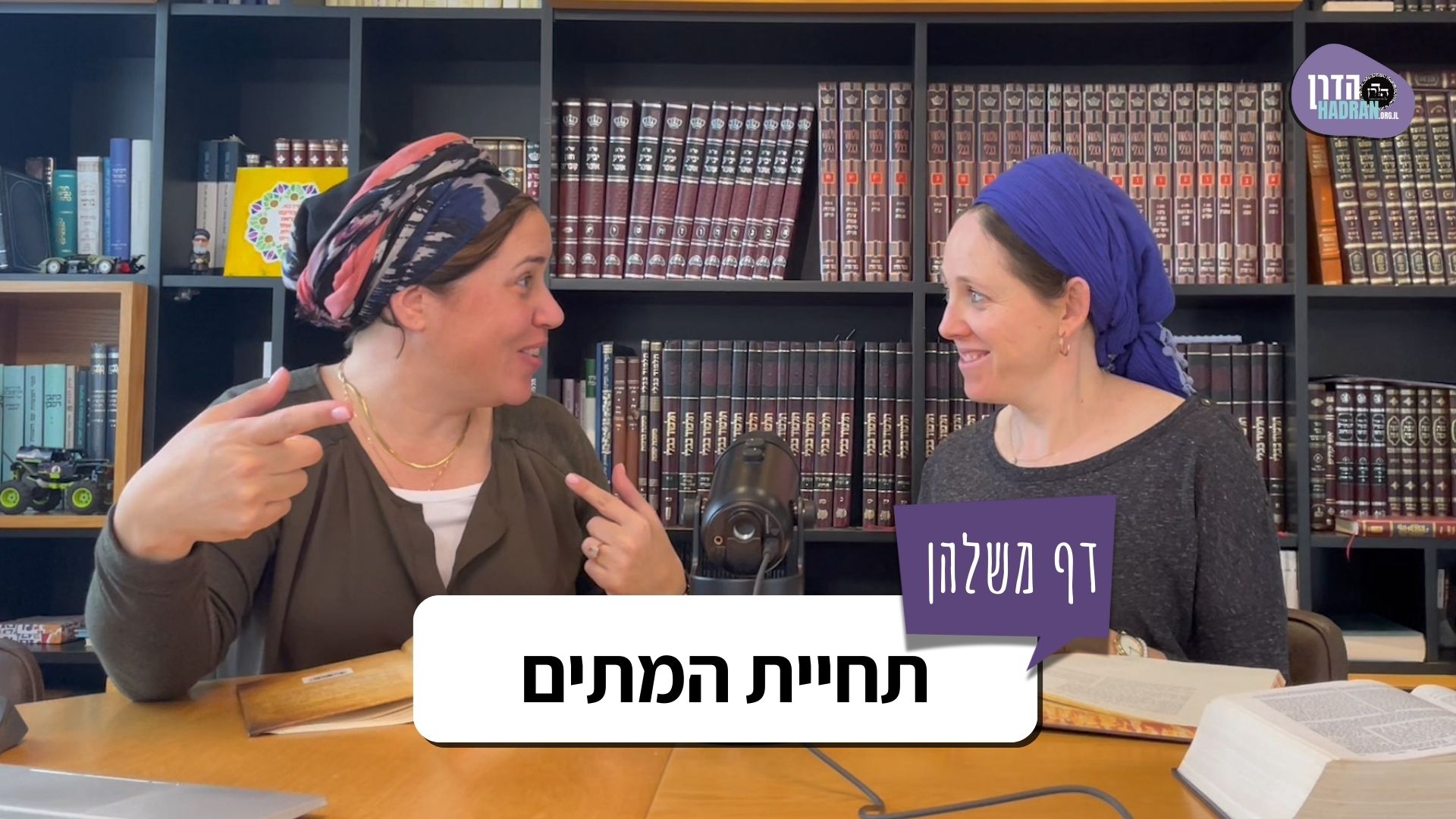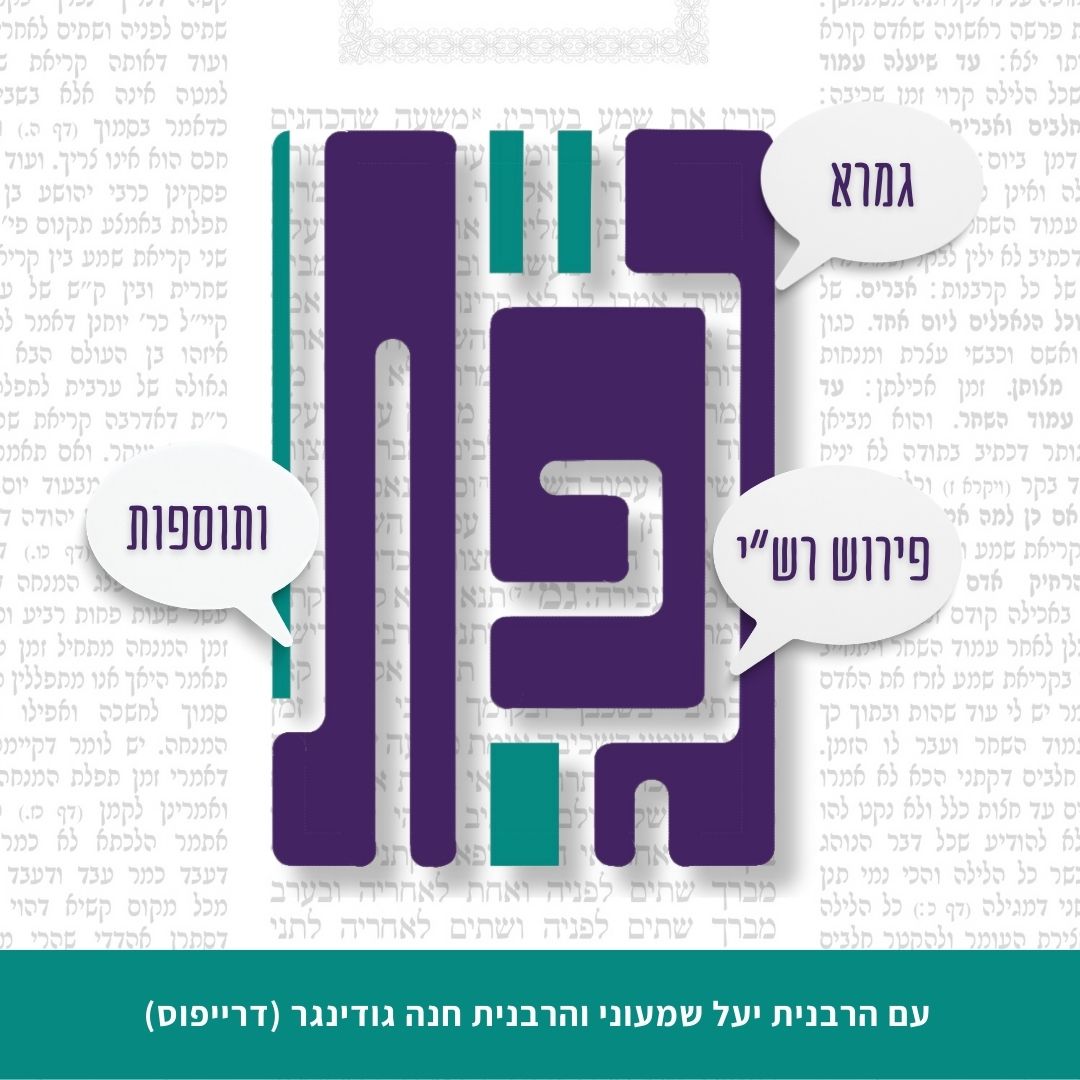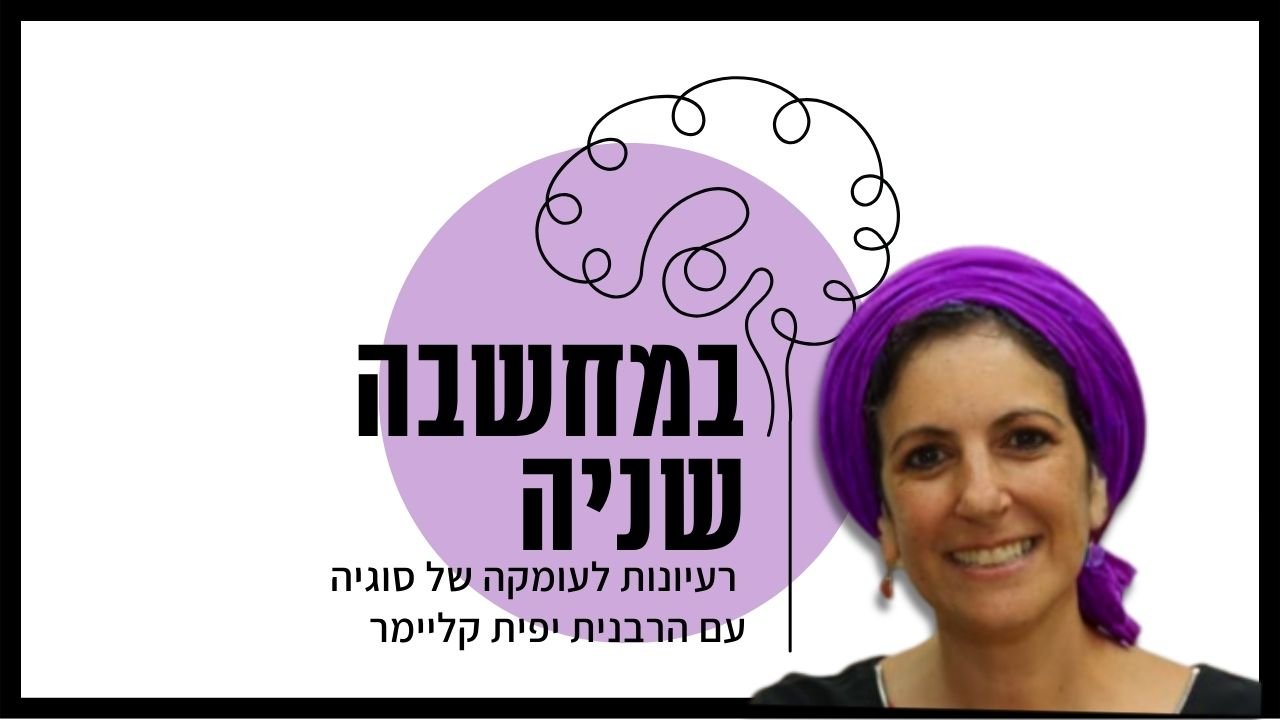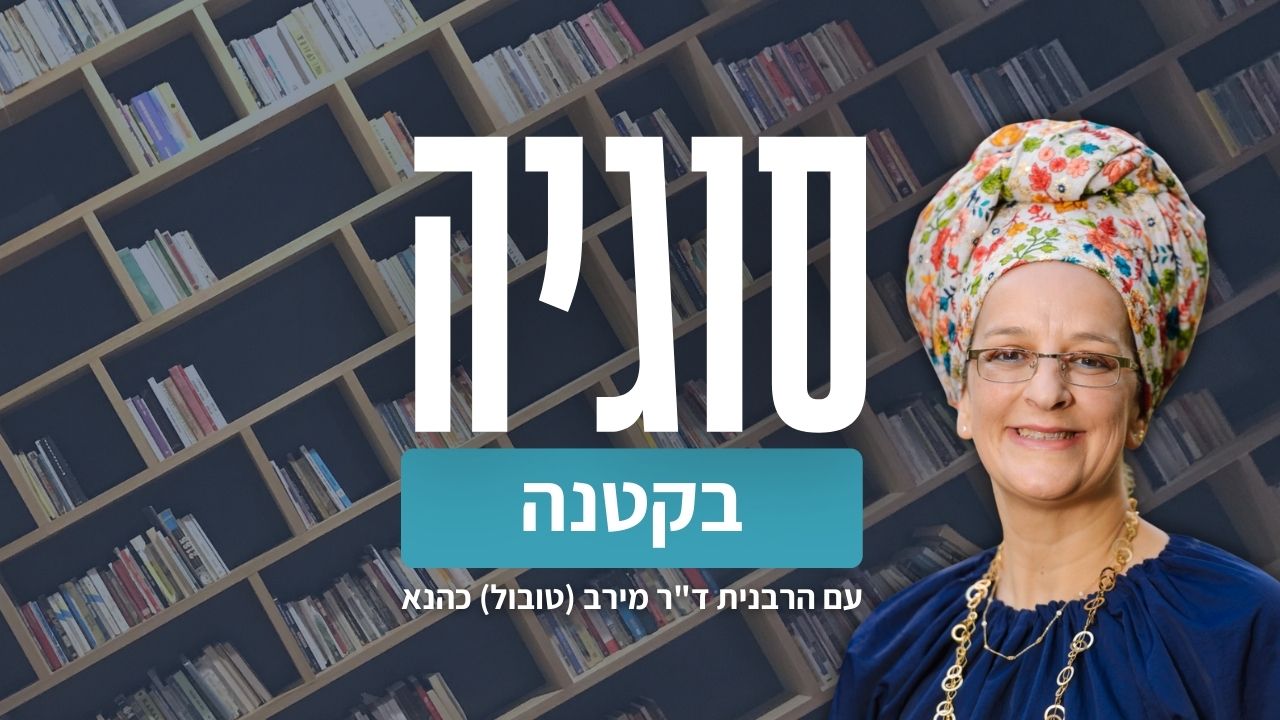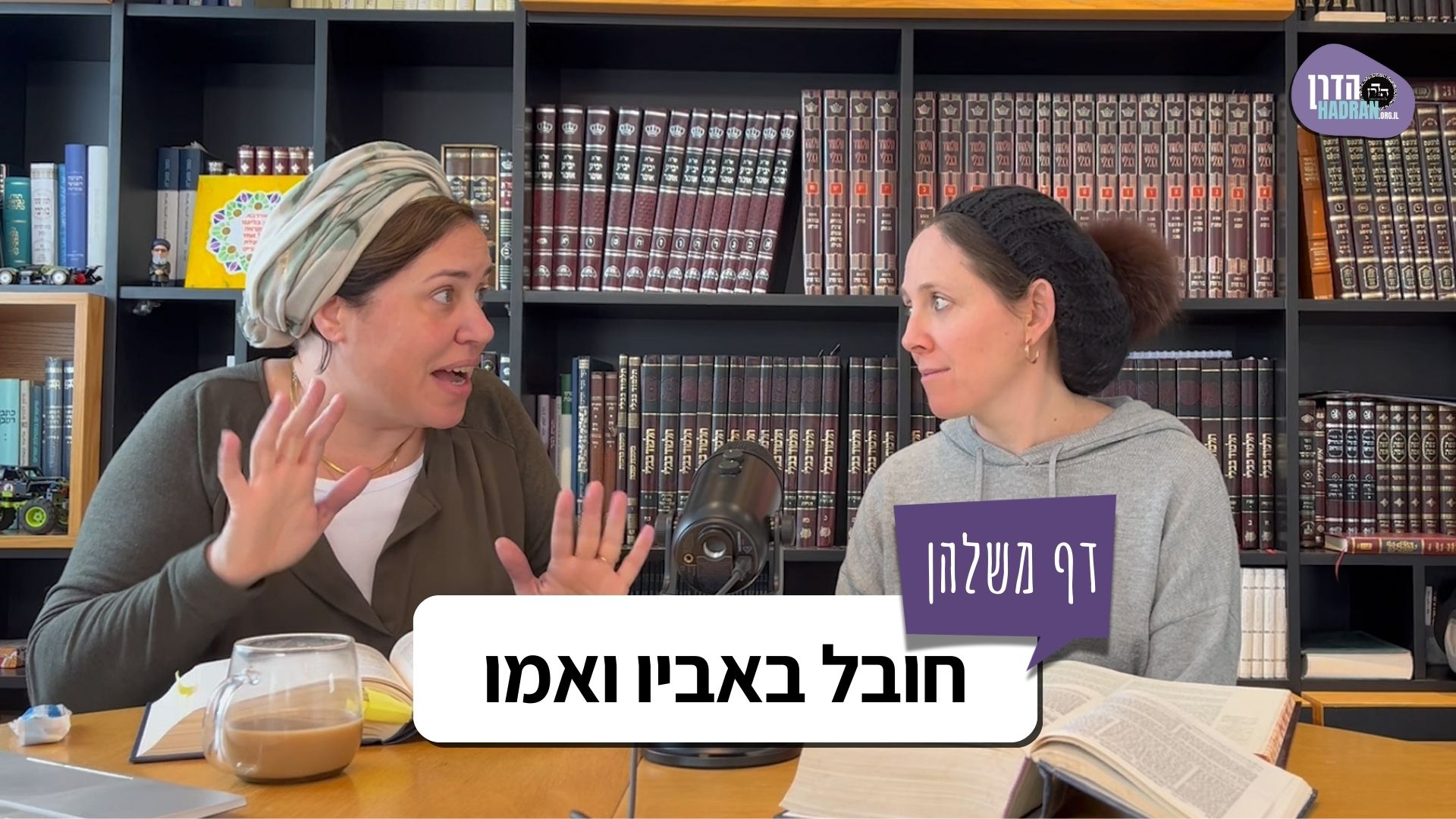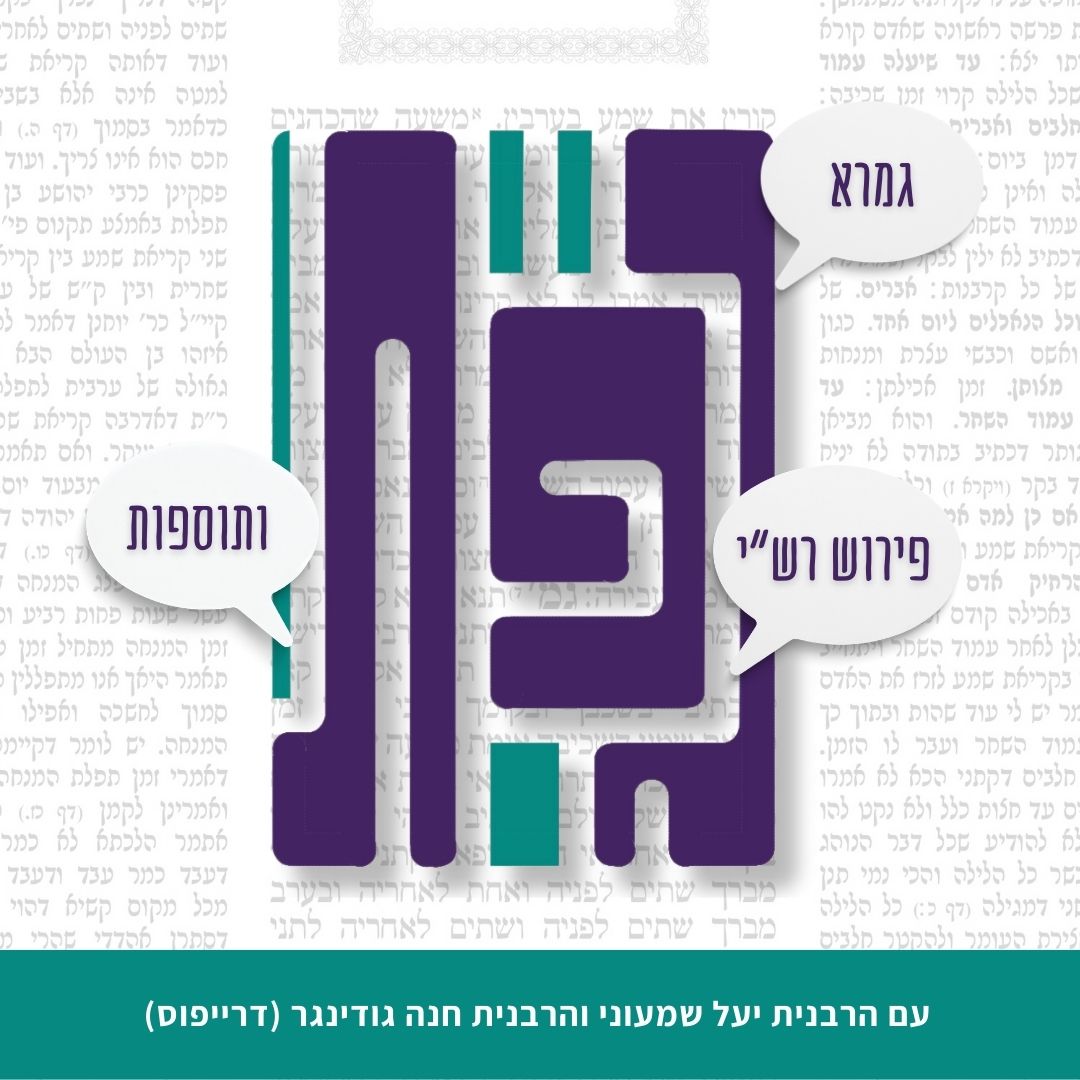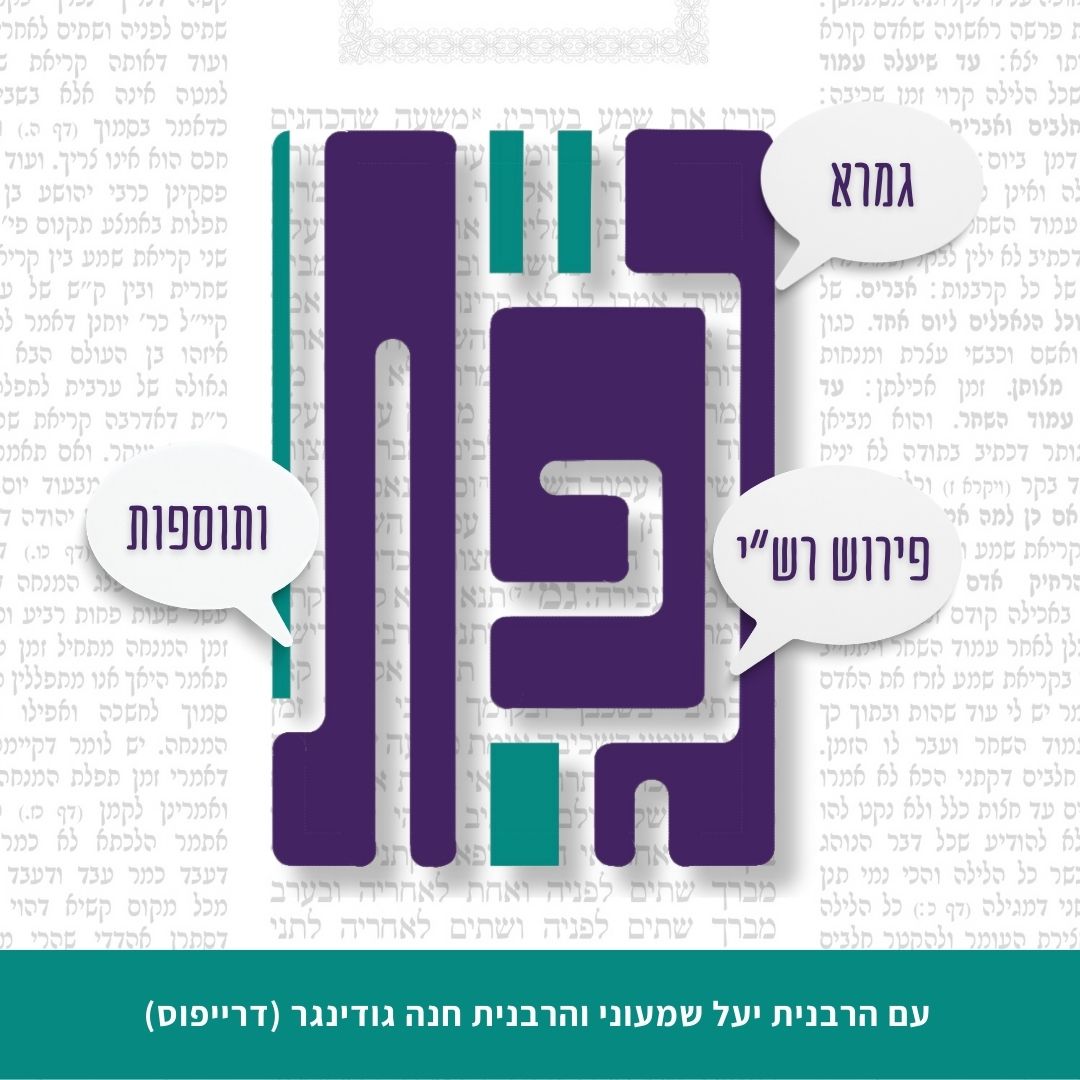סנהדרין קט
מַאן נְשַׁדַּר? נְשַׁדַּר בַּהֲדֵי נַחוּם אִישׁ גַּם זוֹ, דִּמְלוּמָּד בְּנִסִּים הוּא.
whom shall we send the gift? They decided: We will send it with Naḥum of Gam Zo, as he is experienced in miracles.
כִּי מְטָא לְהָהוּא דִּיּוּרָא, בְּעָא לְמֵיבַת. אָמְרִי לֵיהּ: מַאי אִיכָּא בַּהֲדָךְ? אֲמַר לְהוּ: קָא מוֹבֵילְנָא כְּרָגָא לְקֵיסָר. קָמוּ בְּלֵילְיָא, שְׁרוֹנְהוּ לְסִיפְטֵיהּ, וּשְׁקַלוּ כֹּל דַּהֲוָה גַּבֵּיהּ וּמַלּוֹנְהוּ עַפְרָא. כִּי מְטָא לְהָתָם, אִישְׁתְּכַח עַפְרָא. אֲמַר: אַחוֹכֵי קָא מְחַיְּיכִי בִּי יְהוּדָאֵי. אַפְּקוּהּ לְמִקְטְלֵיהּ. אֲמַר: גַּם זוֹ לְטוֹבָה. אֲתָא אֵלִיָּהוּ וְאִידְּמִי לְהוּ כְּחַד מִינַּיְיהוּ. אֲמַר לְהוּ: דִּילְמָא הַאי עַפְרָא מֵעַפְרָא דְּאַבְרָהָם אָבִינוּ הוּא, דַּהֲוָה שָׁדֵי עַפְרָא הָווּ חַרְבֵי, גִּילֵי הָווּ גִּירֵי. בְּדוּק וְאַשְׁכַּחוּ הָכִי.
When he reached a certain lodging, he sought to sleep there. The residents of that lodging said to him: What do you have with you? Naḥum said to them: I am taking the head tax to the emperor. They rose in the night, opened his chest and took everything that was in it, and then filled the chest with dirt. When he arrived there, in Rome, earth was discovered in the chest. The emperor said: The Jews are mocking me by giving me this gift. They took Naḥum out to kill him. Naḥum said: This too is for the best. Elijah the prophet came and appeared to them as one of Naḥum’s traveling party. Elijah said to them: Perhaps this earth is from the earth of Abraham our forefather, who would throw dust and it became swords, and who would throw straw and it became arrows. They examined the dust and discovered that it was indeed the dust of Abraham.
הֲוָה מָחוֹזָא דְּלָא הֲווֹ קָא יָכְלִי לֵיהּ לְמִיכְבְּשֵׁיהּ. שְׁדוֹ מֵהָהוּא עַפְרָא עֲלֵיהּ וְכַבְשׁוּהּ. עַיְּילוּהּ לְבֵי גִנְזָא, אָמְרִי: שְׁקוֹל דְּנִיחָא לָךְ. מַלְּיֵיהּ לְסִיפְטָא דַּהֲבָא. כִּי הֲדַר אֲתָא, אֲמַרוּ לֵיהּ הָנָךְ דָּיּוֹרֵי: מַאי אַמְטֵית לְבֵי מַלְכָּא? אֲמַר לְהוּ: מַאי דִּשְׁקַלִי מֵהָכָא אַמְטַאי לְהָתָם. שָׁקְלִי אִינְהוּ אַמְטוֹ לְהָתָם. קַטְלִינְהוּ לְהָנָךְ דָּיוֹרֵי.
There was a province that the Romans were unable to conquer. They threw some of this earth upon that province and they conquered it. In appreciation for the gift that Naḥum of Gam Zo had brought on behalf of the Jewish people, they brought him into the treasury and said: Take that which is preferable to you. He filled his chest with gold. When he returned to that lodging, those residents said to him: What did you bring to the king’s palace? Naḥum said to them: What I took from here, I brought to there. The residents concluded that the earth with which they had filled the chest had miraculous properties. They took earth and brought it to the emperor. Once the Romans discovered that the earth was ineffective in battle, they executed those residents.
דּוֹר הַפְּלַגָּה אֵין לָהֶם חֵלֶק לָעוֹלָם הַבָּא וְכוּ׳. מַאי עֲבוּד? אָמְרִי דְּבֵי רַבִּי שֵׁילָא: נִבְנֶה מִגְדָּל וְנַעֲלֶה לָרָקִיעַ, וְנַכֶּה אוֹתוֹ בְּקַרְדּוּמּוֹת כְּדֵי שֶׁיָּזוּבוּ מֵימָיו. מַחֲכוּ עֲלַהּ בְּמַעְרְבָא: אִם כֵּן, לִיבְנוֹ אַחַד טוּרָא!
§ The mishna teaches that the members of the generation of the dispersion have no share in the World-to-Come. The Gemara asks: What sin did they perform? Their sin is not explicitly delineated in the Torah. The school of Rabbi Sheila say that the builders of the Tower of Babel said: We will build a tower and ascend to heaven, and we will strike it with axes so that its waters will flow. They laughed at this explanation in the West, Eretz Yisrael, and asked: If that was their objective, let them build a tower on a mountain; why did they build it specifically in a valley (see Genesis 11:2)?
(אֶלָּא) אָמַר רַבִּי יִרְמְיָה בַּר אֶלְעָזָר: נֶחְלְקוּ לְשָׁלֹשׁ כִּיתּוֹת, אַחַת אוֹמֶרֶת: נַעֲלֶה וְנֵשֵׁב שָׁם, וְאַחַת אוֹמֶרֶת: נַעֲלֶה וְנַעֲבוֹד עֲבוֹדָה זָרָה, וְאַחַת אוֹמֶרֶת: נַעֲלֶה וְנַעֲשֶׂה מִלְחָמָה. זוֹ שֶׁאוֹמֶרֶת נַעֲלֶה וְנֵשֵׁב שָׁם – ״הֱפִיצָם ה׳״, וְזוֹ שֶׁאוֹמֶרֶת נַעֲלֶה וְנַעֲשֶׂה מִלְחָמָה – נַעֲשׂוּ קוֹפִים וְרוּחוֹת וְשֵׁידִים וְלִילִין, וְזוֹ שֶׁאוֹמֶרֶת נַעֲלֶה וְנַעֲבוֹד עֲבוֹדָה זָרָה – ״כִּי שָׁם בָּלַל ה׳ שְׂפַת כׇּל הָאָרֶץ״.
Rather, Rabbi Yirmeya bar Elazar says: They divided into three factions; one said: Let us ascend to the top of the tower and dwell there. And one said: Let us ascend to the top of the tower and engage in idol worship. And one said: Let us ascend to the top of the tower and wage war. With regard to that faction that said: Let us ascend to the top of the tower and dwell there, God dispersed them. And that faction that said: Let us ascend to the top of the tower and wage war, became apes, and spirits, and demons, and female demons. And with regard to that faction that said: Let us ascend to the top of the tower and engage in idol worship, it is written: “Because there the Lord confounded the language of all the earth” (Genesis 11:9).
תַּנְיָא, רַבִּי נָתָן אוֹמֵר: כּוּלָּם לְשֵׁם עֲבוֹדָה זָרָה נִתְכַּוְּונוּ. כְּתִיב הָכָא: ״נַעֲשֶׂה לָנוּ שֵׁם״, וּכְתִיב הָתָם: ״וְשֵׁם אֱלֹהִים אֲחֵרִים לֹא תַזְכִּירוּ״. מָה לְהַלָּן עֲבוֹדָה זָרָה, אַף כָּאן עֲבוֹדָה זָרָה.
It is taught in a baraita: Rabbi Natan says: All of those factions intended to build the tower for the sake of idol worship. It is written here: “And let us make a name for us” (Genesis 11:4), and it is written there: “And make no mention of the name of the other gods” (Exodus 23:13). Just as there, the connotation of “name” is idol worship, so too here, the connotation of “name” is idol worship.
אָמַר רַבִּי יוֹחָנָן: מִגְדָּל שְׁלִישׁ נִשְׂרַף, שְׁלִישׁ נִבְלַע, שְׁלִישׁ קַיָּים. אָמַר רַב: אֲוִיר מִגְדָּל מְשַׁכֵּחַ. אָמַר רַב יוֹסֵף: בָּבֶל וּבוֹרְסִיף סִימָן רַע לַתּוֹרָה. מַאי בּוֹרְסִיף? אָמַר רַבִּי אַסִּי: בּוֹר שָׁאפֵי.
Rabbi Yoḥanan says: The uppermost third of the tower was burned, the lowermost third of the tower was swallowed into the earth, and the middle third remained intact. Rav says: The atmosphere of the tower causes forgetfulness; anyone who goes there forgets what he has learned. As a result of the building of the tower, forgetting was introduced into the world. Rav Yosef says: Babylonia and the adjacent place, Bursif, are each a bad omen for Torah, i.e., they cause one to forget his knowledge. The Gemara asks: What is the meaning of Bursif? Rabbi Asi says: It is an abbreviation of empty pit [bor shafi].
״אַנְשֵׁי סְדוֹם אֵין לָהֶם חֵלֶק לָעוֹלָם הַבָּא וְכוּ׳״. תָּנוּ רַבָּנַן: אַנְשֵׁי סְדוֹם אֵין לָהֶן חֵלֶק לָעוֹלָם הַבָּא, שֶׁנֶּאֱמַר: ״וְאַנְשֵׁי סְדֹם רָעִים וְחַטָּאִים לַה׳ מְאֹד״. ״רָעִים״ – בָּעוֹלָם הַזֶּה, ״וְחַטָּאִים״ – לָעוֹלָם הַבָּא.
§ The mishna teaches: The people of Sodom have no share in the World-to-Come. The Sages taught: The people of Sodom have no share in the World-to-Come, as it is stated: “And the men of Sodom were wicked and sinners before the Lord exceedingly” (Genesis 13:13). “Wicked” indicates in this world; “and sinners” indicates for the World-to-Come.
אָמַר רַב יְהוּדָה: רָעִים בְּגוּפָן, וְחַטָּאִים בְּמָמוֹנָם. רָעִים בְּגוּפָן – דִּכְתִיב: ״וְאֵיךְ אֶעֱשֶׂה הָרָעָה הַגְּדֹלָה הַזֹּאת וְחָטָאתִי לֵאלֹהִים״, וְחַטָּאִים בְּמָמוֹנָם – דִּכְתִיב: ״וְהָיָה בְךָ חֵטְא״. ״לַה׳״ – זוֹ בִּרְכַּת הַשֵּׁם. ״מְאֹד״ – שֶׁמִּתְכַּוְּונִים וְחוֹטְאִים.
Rav Yehuda says: “Wicked” is referring to sins they committed with their bodies; “and sinners” is referring to sins they committed with their money. “Wicked” is referring to sins they committed with their bodies, as it is written with regard to Joseph and the wife of Potiphar: “And how can I do this great wickedness, and sin against God” (Genesis 39:9). “And sinners” is referring to sins they committed with their money, as it is written: “And your eye is wicked against your poor brother, and you give him nothing…for it shall be reckoned to you as a sin” (Deuteronomy 15:9). “Before the Lord”; this is referring to blessing, a euphemism for cursing, God. “Exceedingly” means that they had intent and sinned and did not sin unwittingly or driven by lust.
בְּמַתְנִיתָא תָּנָא: ״רָעִים״ – בְּמָמוֹנָם, ״וְחַטָּאִים״ – בְּגוּפָן. רָעִים בְּמָמוֹנָם, דִּכְתִיב: ״וְרָעָה עֵינְךָ בְּאָחִיךָ הָאֶבְיוֹן״. וְחַטָּאִים בְּגוּפָן, דִּכְתִיב: ״וְחָטָאתִי לֵאלֹהִים״. ״לַה׳״ – זוֹ בִּרְכַּת הַשֵּׁם. ״מְאֹד״ – זוֹ שְׁפִיכוּת דָּמִים, שֶׁנֶּאֱמַר: ״וְגַם דָּם נָקִי שָׁפַךְ מְנַשֶּׁה בִּירוּשָׁלַיִם הַרְבֵּה מְאֹד [וְגוֹ׳]״.
It was taught in a baraita: “Wicked” is referring to sins they committed with their money; “and sinners” is referring to sins they committed with their bodies. “Wicked” is referring to sins they committed with their money, as it is written: “And your eye is wicked against your poor brother and you give him nothing” (Deuteronomy 15:9). “And sinners” is referring to sins they committed with their bodies, as it is written with regard to Joseph and the wife of Potiphar: “And sin against God” (Genesis 39:9). “Before the Lord”; this is referring to blessing, a euphemism for cursing, God. “Exceedingly [meod ]” is referring to bloodshed, as it is stated: “Moreover Manasseh shed very [meod ] much blood” (II Kings 21:16).
תָּנוּ רַבָּנַן: אַנְשֵׁי סְדוֹם לֹא נִתְגָּאוּ אֶלָּא בִּשְׁבִיל טוֹבָה שֶׁהִשְׁפִּיעַ לָהֶם הַקָּדוֹשׁ בָּרוּךְ הוּא, וּמָה כְּתִיב בָּהֶם? ״אֶרֶץ מִמֶּנָּה יֵצֵא לָחֶם וְתַחְתֶּיהָ נֶהְפַּךְ כְּמוֹ אֵשׁ. מְקוֹם סַפִּיר אֲבָנֶיהָ וְעַפְרֹת זָהָב לוֹ. נָתִיב לֹא יְדָעוֹ עָיִט וְלֹא שְׁזָפַתּוּ עֵין אַיָּה. לֹא הִדְרִיכוּהוּ בְנֵי שָׁחַץ לֹא עָדָה עָלָיו שָׁחַל״.
The Sages taught: The people of Sodom became haughty and sinned due only to the excessive goodness that the Holy One, Blessed be He, bestowed upon them. And what is written concerning them, indicating that goodness? “As for the earth, out of it comes bread, and underneath it is turned up as it were by fire. Its stones are the place of sapphires, and it has dust of gold. That path no bird of prey knows, neither has the falcon’s eye seen it. The proud beasts have not trodden it, nor has the lion passed thereby” (Job 28:5–8). The reference is to the city of Sodom, which was later overturned, as it is stated thereafter: “He puts forth His hand upon the flinty rock; He overturns the mountains by the roots” (Job 28:9).
אָמְרוּ: וְכִי מֵאַחַר שֶׁ״אֶרֶץ מִמֶּנָּה יֵצֵא לָחֶם וְעַפְרֹת זָהָב לוֹ״, לָמָּה לָנוּ עוֹבְרֵי דְרָכִים? שֶׁאֵין בָּאִים אֵלֵינוּ אֶלָּא לְחַסְּרֵינוּ [מִמָּמוֹנֵנוּ]. בּוֹאוּ וּנְשַׁכַּח תּוֹרַת רֶגֶל מֵאַרְצֵנוּ! שֶׁנֶּאֱמַר: ״פָּרַץ נַחַל מֵעִם גָּר הַנִּשְׁכָּחִים מִנִּי רָגֶל דַּלּוּ מֵאֱנוֹשׁ נָעוּ״.
The people of Sodom said: Since we live in a land from which bread comes and has the dust of gold, we have everything that we need. Why do we need travelers, as they come only to divest us of our property? Come, let us cause the proper treatment of travelers to be forgotten from our land, as it is stated: “He breaks open a watercourse in a place far from inhabitants, forgotten by pedestrians, they are dried up, they have moved away from men” (Job 28:4).
דָּרֵשׁ רָבָא: מַאי דִּכְתִיב ״עַד אָנָה תְּהוֹתְתוּ עַל אִישׁ תְּרׇצְּחוּ כֻלְּכֶם כְּקִיר נָטוּי גָּדֵר הַדְּחוּיָה״? מְלַמֵּד שֶׁהָיוּ נוֹתְנִין עֵינֵיהֶן בְּבַעֲלֵי מָמוֹן, וּמוֹשִׁיבִין אוֹתוֹ אֵצֶל קִיר נָטוּי, וְדוֹחִין אוֹתוֹ עָלָיו, וּבָאִים וְנוֹטְלִין אֶת מָמוֹנוֹ.
Rava taught: What is the meaning of that which is written: “How long will you seek to overwhelm a man? You will all be murdered like a leaning wall or a tottering fence” (Psalms 62:4)? This teaches that the people of Sodom set their sights on property owners. They would take one and place him alongside an inclined, flimsy wall that was about to fall, and push it upon him to kill him, and then they would come and take his property.
דָּרֵשׁ רָבָא: מַאי דִּכְתִיב ״חָתַר בַּחֹשֶׁךְ בָּתִּים יוֹמָם חִתְּמוּ לָמוֹ לֹא יָדְעוּ אוֹר״? מְלַמֵּד שֶׁהָיוּ נוֹתְנִים עֵינֵיהֶם בְּבַעֲלֵי מָמוֹן, וּמַפְקִידִים אֶצְלוֹ אֲפַרְסְמוֹן, וּמַנִּיחִים אוֹתוֹ בְּבֵית גִּנְזֵיהֶם. לָעֶרֶב בָּאִים וּמְרִיחִין אוֹתוֹ כְּכֶלֶב, שֶׁנֶּאֱמַר: ״יָשׁוּבוּ לָעֶרֶב יֶהֱמוּ כַכָּלֶב וִיסוֹבְבוּ עִיר״, וּבָאִים וְחוֹתְרִים שָׁם וְנוֹטְלִין אוֹתוֹ מָמוֹן.
Rava taught: What is the meaning of that which is written: “In the dark they dig through houses; by day they shut themselves up; they know not the light” (Job 24:16)? This teaches that they would set their sights on property owners. They would take one and they would give him balsam, whose smell diffuses, and the property owner would place it in his treasury. In the evening, the people of Sodom would come and sniff it out like a dog and discover the location of the property owner’s treasury, as it is stated: “They return at evening; they howl like a dog, and go round about the city” (Psalms 59:7). And after discovering the location they would come and dig there, and they would take that property.
״עָרוֹם יָלִינוּ מִבְּלִי לְבוּשׁ וְאֵין כְּסוּת בַּקָּרָה״, ״חֲמוֹר יְתוֹמִים יִנְהָגוּ יַחְבְּלוּ שׁוֹר אַלְמָנָה״, ״גְּבֻלוֹת יַשִּׂיגוּ עֵדֶר גָּזְלוּ וַיִּרְעוּ״, ״וְהוּא לִקְבָרוֹת יוּבָל וְעַל גָּדִישׁ יִשְׁקוֹד״.
The Gemara cites verses that allude to the practices of the people of Sodom: “They lie at night naked without clothing, and they have no covering in the cold” (Job 24:7). And likewise: “They drive away the donkey of the fatherless; they take the widow’s ox as a pledge” (Job 24:3). And likewise: “They trespass; they violently steal flocks and graze them” (Job 24:2). And likewise: “For he is brought to the grave, and watch is kept over his tomb” (Job 21:32).
דָּרֵשׁ רַבִּי יוֹסֵי בְּצִיפּוֹרִי. אִחַתְרַין הָהִיא לֵילְיָא תְּלָת מְאָה מַחְתְּרָתָא בְּצִיפּוֹרִי. אֲתוֹ וְקָא מְצַעֲרִי לֵיהּ. אֲמַרוּ לֵיהּ: יְהַבְיתְּ אוֹרְחֵיהּ לְגַנָּבֵי! אֲמַר לְהוּ: מִי הֲוָה יָדַעְנָא דְּאַתּוּ גַּנָּבֵי? כִּי קָא נָח נַפְשֵׁיהּ דְּרַבִּי יוֹסֵי, שָׁפְעִי מַרְזְבֵי דְצִיפּוֹרִי דְּמָא.
Rabbi Yosei taught in Tzippori the methods of theft employed in Sodom. That night three hundred tunnels were excavated in Tzippori in order to employ those methods. Homeowners came and harassed him; they said to him: You have given a way for thieves to steal. Rabbi Yosei said to them: Did I know that thieves would come as a result of my lecture? The Gemara relates: When Rabbi Yosei died, the gutters of Tzippori miraculously overflowed with blood as a sign of his death.
אָמְרִי: דְּאִית לֵיהּ חַד תּוֹרָא – מַרְעֵי חַד יוֹמָא, דְּלֵית לֵיהּ – לִירְעֵי תְּרֵי יוֹמֵי. הָהוּא יַתְמָא בַּר אַרְמַלְתָּא, יְהַבוּ לֵיהּ תּוֹרֵי לְמִרְעֵיה. אֲזַל, שַׁקְלִינְהוּ וְקַטְלִינְהוּ. אֲמַר לְהוּ:
The people of Sodom would say: Anyone who has one ox shall herd the city’s oxen for one day. Anyone who does not have any oxen shall herd the city’s oxen for two days. The Gemara relates: They gave oxen to a certain orphan, son of a widow, to herd. He went and took them and killed them. The orphan said to the people of Sodom:
דְּאִית לֵיהּ תּוֹרָא – נִשְׁקוֹל חַד מַשְׁכָּא, דְּלֵית לֵיהּ תּוֹרָא – נִשְׁקוֹל תְּרֵי מַשְׁכֵּי. אֲמַרוּ לֵיהּ: מַאי הַאי? אֲמַר לְהוּ: סוֹף דִּינָא כִּתְחִילַּת דִּינָא. מָה תְּחִילַּת דִּינָא? דְּאִית לֵיהּ תּוֹרָא – מַרְעֵי חַד יוֹמָא, דְּלֵית לֵיהּ תּוֹרֵי – מַרְעֵי תְּרֵי יוֹמֵי. אַף סוֹף דִּינָא: דְּאִית לֵיהּ חַד תּוֹרָא – לִשְׁקוֹל חַד, דְּלֵית לֵיהּ תּוֹרָא – לִשְׁקוֹל תְּרֵי.
Let anyone who has one ox take one hide and let anyone who does not have an ox take two hides. The people of Sodom said to the orphan: What is the reason for this? The orphan said to them: The ultimate rule is parallel to the initial rule; just as the initial rule is that anyone who has one ox shall herd the city’s animals for one day and anyone who does not have any oxen shall herd the city’s animals for two days, so too, the ultimate rule is: Let anyone who has one ox take one hide and let anyone who does not have an ox take two hides.
דְּעָבַר בְּמַבָּרָא – נִיתֵּיב חַד זוּזָא, דְּלָא עָבַר בְּמַבָּרָא – נִיתֵּיב תְּרֵי. דַּהֲוָה לֵיהּ דָּרָא דְּלִבְנֵי, אָתֵי כֹּל חַד וְחַד שָׁקֵיל חֲדָא, אֲמַר לֵיהּ: אֲנָא חֲדָא דִּשְׁקַלִי. דַּהֲוָה שָׁדֵי תּוּמֵי אוֹ שַׁמְכֵי, אֲתוֹ כֹּל חַד וְחַד שָׁקֵיל חֲדָא, אֲמַר לֵיהּ: אֲנָא חֲדָא דִּשְׁקַלִי.
Furthermore, they declared in Sodom: Let one who crosses on a ferry give one dinar as payment; let one who does not cross on a ferry, but walks in the river, give two dinars. In addition, when there was anyone who had a row of bricks, each and every one of the people of Sodom would come and take one brick and say to him: I am taking only one, and you are certainly not particular about so inconsequential an item, and they would do this until none remained. And when there was anyone who would cast garlic or onions to dry, each and every one of the people of Sodom would come and take one and say to him: I took only one garlic or onion, and they would do this until none remained.
אַרְבַּע דַּיָּינֵי הָיוּ בִּסְדוֹם, שַׁקְרַאי וְשַׁקְרוֹרַאי זַיְיפַי וּמַצְלֵי דִּינָא. דְּמָחֵי לֵיהּ לְאִיתְּתָא דְּחַבְרֵיהּ וּמַפְּלָא (לֵיהּ), אָמְרִי לֵיהּ: יַהֲבַהּ נִיהֲלֵיהּ דְּנִיעַבְּרַהּ נִיהֲלָיךְ. דְּפָסֵיק לֵיהּ לְאוּדְנָא דַּחֲמָרָא דְּחַבְרֵיהּ, אֲמַרוּ לֵיהּ: הֲבַהּ נִיהֲלֵיהּ עַד דְּקָדְחָא. דְּפָדַע לֵיהּ לְחַבְרֵיהּ, אָמְרִי לֵיהּ: הַב לֵיהּ אַגְרָא דִּשְׁקַל לָךְ דְּמָא.
There were four judges in Sodom and they were named for their actions: Shakrai, meaning liar, and Shakrurai, habitual liar, Zayfai, forger, and Matzlei Dina, perverter of justice. These were the judgments that they rendered: In a case of one who strikes the wife of another and causes her to miscarry, they would say to the woman’s husband: Give the woman to the one who struck her, so that she will be impregnated for you again. In a case of one who severed the ear of another’s donkey, they would say to the owner of the donkey: Give the donkey to the one who caused the damage, until the ear grows back. In a case of one who wounds another, they would say to the injured party: Give the one who wounded you a fee, as he let your blood.
דְּעָבַר בְּמַבָּרָא – יְהֵיב אַרְבְּעָה זוּזֵי, דְּעָבַר בְּמַיָּא – יָהֵיב תְּמָנְיָא זוּזֵי. זִימְנָא חֲדָא אֲתָא הָהוּא כּוֹבֵס, אִיקְּלַע לְהָתָם. אֲמַרוּ לֵיהּ: הַב אַרְבְּעָה זוּזֵי. אָמַר לְהוּ: אֲנָא בְּמַיָּא עֲבַרִי. אֲמַרוּ לֵיהּ: אִם כֵּן, הַב תְּמָנְיָא דַּעֲבַרְתְּ בְּמַיָּא. לָא יְהַב. פַּדְיוּהּ. אֲתָא לְקַמֵּיהּ דְּדַיָּינָא. אֲמַר לֵיהּ: הַב לֵיהּ אַגְרָא דִּשְׁקַל לָךְ דְּמָא, וּתְמָנְיָא זוּזֵי דַּעֲבַרְתְּ בְּמַיָּא.
And they instituted an ordinance: One who crossed the river on a ferry gives four dinars, and one who crossed the river in the water gives eight dinars. One time a certain launderer came and arrived there. The people of Sodom said to him: Give four dinars as payment for the ferry. He said to them: I crossed in the water. They said to him: If so, give eight dinars, as you crossed in the water. He did not give the payment, and they struck him and wounded him. He came before the judge to seek compensation. The judge said to him: Give your assailant a fee, as he let your blood, and eight dinars, as you crossed the river in the water.
אֱלִיעֶזֶר עֶבֶד אַבְרָהָם אִיתְרְמִי הָתָם, פַּדְיוּהּי. אֲתָא לְקַמֵּיהּ דַּיָּינָא. אֲמַר לֵיהּ: הַב לֵיהּ אַגְרָא דִּשְׁקַל לָךְ דְּמָא. שְׁקַל גְּלָלָא, פַּדְיֵוהּ אִיהוּ לְדַיָּינָא. אֲמַר: מַאי הַאי? אֲמַר לֵיהּ: אַגְרָא דִּנְפַק לִי מִינָּךְ, הַב נִיהֲלֵיהּ לְהַאי, וְזוּזֵי דִּידִי כִּדְקָיְימִי קָיְימִי.
Eliezer, servant of Abraham, happened to come there, and they wounded him. He came before the judge to seek compensation. The judge said to him: Give your assailant a fee, as he let your blood. He took a stone and he wounded the judge. The judge said: What is this? Eliezer said to him: The fee that is to be paid to me by you, give it to that person who wounded me, and my money will remain where it remains.
הָוְיָא לְהוּ פּוּרְיְיתָא דַּהֲווֹ מַגְנִי עֲלַהּ אוֹרְחִין. כִּי מַאֲרֵיךְ – גָּיְיזִי לֵיהּ, כִּי גוּץ – מָתְחִין לֵיהּ. אֱלִיעֶזֶר עֶבֶד אַבְרָהָם אִקְּלַע לְהָתָם. אֲמַרוּ לֵיהּ: קוּם גְּנִי אַפּוּרְיָא. אֲמַר לְהוֹן: נִדְרָא נְדַרִי מִן יוֹמָא דְּמִיתַת אִמָּא לָא גָּנֵינָא אַפּוּרְיָא.
The Gemara continues to discuss the sins of the people of Sodom: They had beds on which they would lay their guests; when a guest was longer than the bed they would cut him, and when a guest was shorter than the bed they would stretch him. Eliezer, servant of Abraham, happened to come there. They said to him: Come lie on the bed. He said to them: I took a vow that since the day my mother died I do not lie on a bed.
כִּי הֲוָה מִתְרְמֵי לְהוּ עַנְיָא, יְהַבוּ לֵיהּ כֹּל חַד וְחַד דִּינָרָא, וּכְתִיב שְׁמֵיהּ עֲלֵיהּ. וְרִיפְתָּא לָא הֲווֹ מַמְטֵי לֵיהּ. כִּי הֲוָה מָיֵת, אָתֵי כֹּל חַד וְחַד שָׁקֵיל דִּידֵיהּ.
When a poor person would happen to come to Sodom, each and every person would give him a dinar, and the name of the giver was written on each dinar. And they would not give or sell him bread, so that he could not spend the money and would die of hunger. When he would die, each and every person would come and take his dinar.
הָכִי אַתְנוֹ בֵּינַיְיהוּ: כֹּל מַאן דְּמַזְמֵין גַּבְרָא לְבֵי הִילּוּלָא, לְשַׁלַּח גְּלִימָא. הֲוִי הַאי הִילּוּלָא, אִקְּלַע אֱלִיעֶזֶר לְהָתָם וְלָא יְהַבוּ לֵיהּ נַהֲמָא. כִּי בָּעֵי לְמִסְעַד, אֲתָא אֱלִיעֶזֶר וִיתֵיב לְסֵיפָא דְּכוּלְּהוּ. אֲמַרוּ לֵיהּ: מַאן אַזְמְנָךְ לְהָכָא? אֲמַר לֵיהּ לְהָהוּא [דְּיָתֵיב]: אַתְּ זַמֵּנְתַּן. [אֲמַר: דִילְמָא שָׁמְעִי בִּי דַּאֲנָא אַזְמֵינְתֵּיהּ וּמְשַׁלְּחִי לֵיהּ מָאנֵיהּ דְּהַאי גַּבְרָא.] שְׁקַל גְּלִימֵיהּ הָהוּא דְּיָתֵיב גַּבֵּיהּ וּרְהַט לְבָרָא. וְכֵן עֲבַד לְכוּלְּהוּ עַד דְּנָפְקִי כּוּלְּהוּ וְאַכְלַאּ אִיהוּ לִסְעוּדְתָּא.
This is what the people of Sodom stipulated among themselves: Whoever invites a man to a wedding, his cloak will be removed. There was this wedding, and Eliezer, servant of Abraham, arrived there and they did not give him bread. When he sought to dine, Eliezer came and sat at the end, behind everyone. They said to him: Who invited you to here? He said to the one sitting next to him: You invited me. That man said to himself: Perhaps they will hear that I invited him and they will remove the garment of that man, referring to himself. The one who sat next to him took his cloak and ran outside. And likewise, Eliezer did the same for all of them until they all left, and he ate the meal.
הַוְיָא הָהִיא רָבִיתָא דַּהֲוָת קָא מַפְּקָא רִיפְתָּא לְעַנְיָא בְּחַצְבָּא. אִיגַּלַּאי מִלְּתָא, שַׁפְיוּהָ דּוּבְשָׁא, וְאוֹקְמוּהָ עַל אִיגַּר שׁוּרָא. אֲתֹא זִיבּוּרֵי וְאַכְלוּהָ. וְהַיְינוּ דִּכְתִיב: ״וַיֹּאמֶר ה׳ זַעֲקַת סְדֹם וַעֲמֹרָה כִּי רָבָּה״. וְאָמַר רַב יְהוּדָה אָמַר רַב: עַל עִיסְקֵי רִיבָה.
There was a young woman who would take bread out to the poor people in a pitcher so the people of Sodom would not see it. The matter was revealed, and they smeared her with honey and positioned her on the wall of the city, and the hornets came and consumed her. And that is the meaning of that which is written: “And the Lord said: Because the cry of Sodom and Gomorrah is great [rabba]” (Genesis 18:20). And Rav Yehuda says that Rav says: Rabba is an allusion to the matter of the young woman [riva] who was killed for her act of kindness. It is due to that sin that the fate of the people of Sodom was sealed.
מְרַגְּלִים אֵין לָהֶם חֵלֶק לָעוֹלָם הַבָּא, שֶׁנֶּאֱמַר: ״וַיָּמֻתוּ הָאֲנָשִׁים מוֹצִאֵי דִבַּת הָאָרֶץ רָעָה בַּמַּגֵּפָה״. ״וַיָּמֻתוּ״ – בָּעוֹלָם הַזֶּה, ״בַּמַּגֵּפָה״ – לָעוֹלָם הַבָּא.
§ The mishna teaches: The spies who spread an evil report of their visit to Canaan have no share in the World-to-Come, as it is stated: “And those men who spread the evil report about the land died by plague before the Lord” (Numbers 14:37). “And…died” indicates in this world, and “by plague” indicates for the World-to-Come.
עֲדַת קֹרַח אֵין לָהֶם חֵלֶק לָעוֹלָם הַבָּא, שֶׁנֶּאֱמַר: ״וַתְּכַס עֲלֵיהֶם הָאָרֶץ״ – בָּעוֹלָם הַזֶּה, ״וַיֹּאבְדוּ מִתּוֹךְ הַקָּהָל״ – לָעוֹלָם הַבָּא. דִּבְרֵי רַבִּי עֲקִיבָא. רַבִּי אֱלִיעֶזֶר אוֹמֵר: עֲלֵיהֶם אָמַר הַכָּתוּב ״ה׳ מֵמִית וּמְחַיֶּה מוֹרִיד שְׁאוֹל וַיָּעַל״.
The members of the assembly of Korah have no share in the World-to-Come, as it is stated: “And the earth closed upon them” (Numbers 16:33), meaning in this world, and also: “And they perished from among the assembly” (Numbers 16:33), meaning in the World-to-Come; this is the statement of Rabbi Akiva. Rabbi Eliezer says: About the assembly of Korah, the verse states: “The Lord kills and makes alive; He lowers to the grave, and raises” (I Samuel 2:6), indicating that the assembly of Korah has a share in the World-to-Come.
תָּנוּ רַבָּנַן: עֲדַת קֹרַח אֵין לָהֶם חֵלֶק לָעוֹלָם הַבָּא, שֶׁנֶּאֱמַר: ״וַתְּכַס עֲלֵיהֶם הָאָרֶץ״ – בָּעוֹלָם הַזֶּה, ״וַיֹּאבְדוּ מִתּוֹךְ הַקָּהָל״ – לָעוֹלָם הַבָּא. דִּבְרֵי רַבִּי עֲקִיבָא. רַבִּי יְהוּדָה בֶּן בְּתִירָא אוֹמֵר: הֲרֵי הֵן כַּאֲבֵידָה הַמִּתְבַּקֶּשֶׁת, שֶׁנֶּאֱמַר: ״תָּעִיתִי כְּשֶׂה אֹבֵד בַּקֵּשׁ עַבְדֶּךָ כִּי מִצְוֹתֶיךָ לֹא שָׁכָחְתִּי״.
The Sages taught in a baraita (Tosefta 13:9): The members of the assembly of Korah have no share in the World-to-Come, as it is stated: “And the earth closed upon them” (Numbers 16:33), meaning in this world, and also: “And they perished from among the assembly” (Numbers 16:33), meaning in the World-to-Come; this is the statement of Rabbi Akiva. Rabbi Yehuda ben Beteira says: Although it says that they perished, they are like a lost item that is sought, ultimately found, and rehabilitated, as it is stated: “I have gone astray like a lost sheep; seek out your servant, for I do not forget your mitzvot” (Psalms 119:176).
״וַיִּקַּח [קֹרַח]״ – אָמַר רֵישׁ לָקִישׁ: שֶׁלָּקַח מִקָּח רַע לְעַצְמוֹ. ״קֹרַח״ – שֶׁנַּעֲשָׂה קׇרְחָה בְּיִשְׂרָאֵל. ״בֶּן יִצְהָר״ – בֵּן שֶׁהִרְתִּיחַ עָלָיו אֶת כָּל הָעוֹלָם כַּצׇּהֳרַיִם. ״בֶּן קְהָת״ – בֵּן שֶׁהִקְהָה שִׁינֵּי מוֹלִידָיו. ״בֶּן לֵוִי״ – בֵּן שֶׁנַּעֲשָׂה לְוָיָה בְּגֵיהִנָּם.
Apropos Korah, the Gemara proceeds to interpret the verses written concerning him. “And Korah, son of Izhar, son of Kohath, son of Levi, took [vayikkaḥ]” (Numbers 16:1), Reish Lakish says: He purchased [lakaḥ] a bad acquisition for himself, as through his actions he drove himself from the world. “Korah” alludes to the fact that because of him a void [korḥa] was created in the children of Israel. “Son of Izhar,” is referring to a son who incited the wrath of the entire world upon him like the heat of the afternoon [tzohorayim]. “Son of Kohath,” is referring to a son who blunted [hik’ha] the teeth of his parents, i.e., he shamed them with his conduct. “Son of Levi,” is referring to a son who became an escort [levaya] in Gehenna.
וְלִיחְשׁוֹב נָמֵי בֶּן יַעֲקֹב, בֵּן שֶׁעָקַב עַצְמוֹ לְגֵיהִנָּם? אָמַר רַב שְׁמוּאֵל בַּר רַב יִצְחָק: יַעֲקֹב בִּיקֵּשׁ רַחֲמִים עַל עַצְמוֹ, שֶׁנֶּאֱמַר ״בְּסֹדָם אַל תָּבֹא נַפְשִׁי בִּקְהָלָם אַל תֵּחַד כְּבֹדִי״. ״בְּסֹדָם אַל תָּבֹא נַפְשִׁי״ – אֵלּוּ מְרַגְּלִים. ״בִּקְהָלָם אַל תֵּחַד כְּבֹדִי״ – זֶה עֲדַת קֹרַח.
The Gemara asks: But if Korah’s lineage is being interpreted disparagingly, why not let the Torah also include: Son of Jacob [Ya’akov], and interpret it: A son who contorted [she’akav] himself until he reached Gehenna? Rav Shmuel bar Rav Yitzḥak says: Jacob prayed for mercy for himself that his name would not be included in the lineage of Korah, as it is stated: “Let my soul not come into their council; to their assembly let my honor not be united” (Genesis 49:6). “Let my soul not come into their council”; these are the spies. Jacob prayed that his name would not be mentioned in their regard. “To their assembly let my honor not be united”; this is referring to the assembly of Korah.
״דָּתָן״ – שֶׁעָבַר עַל דָּת אֵל, ״אֲבִירָם״ – שֶׁאִיבֵּר עַצְמוֹ מֵעֲשׂוֹת תְּשׁוּבָה, ״וְאוֹן״ – שֶׁיָּשַׁב בַּאֲנִינוּת, ״פֶּלֶת״ – שֶׁנַּעֲשׂוּ לוֹ פְּלָאוֹת, ״בֶּן רְאוּבֵן״ – בֵּן שֶׁרָאָה וְהֵבִין.
The Gemara proceeds to interpret the names of Korah’s cohorts: “Dathan and Abiram, the sons of Eliab, and On, the son of Peleth, sons of Reuben” (Numbers 16:1). “Dathan” is one who violated the precepts [dat] of God. “Abiram” is one who braced [iber] himself from repenting. “And On” indicates one who sat in acute mourning [aninut] over the sin that he committed, and he repented and was spared. “Peleth” is one for whom wonders [pelaot] were performed. Son of Reuben [Reuven], is a son who saw and understood [ra’a vehevin] the nature of what was transpiring and repented.
אָמַר רַב: ״אוֹן בֶּן פֶּלֶת אִשְׁתּוֹ הִצִּילַתּוּ. אֲמַרָה לֵיהּ: מַאי נָפְקָא לָךְ מִינַּהּ? אִי מָר רַבָּה – אַנְתְּ תַּלְמִידָא, וְאִי מָר רַבָּה – אַנְתְּ תַּלְמִידָא. אֲמַר לַהּ: מַאי אֶעֱבֵיד? הֲוַאי בְּעֵצָה וְאִשְׁתְּבַעִי לִי בַּהֲדַיְיהוּ. אֲמַרָה לֵיהּ: יָדַעְנָא דְּכוּלַּהּ כְּנִישְׁתָּא קַדִּישְׁתָּא נִינְהוּ, דִּכְתִיב: ״כִּי כׇל הָעֵדָה כֻּלָּם קְדֹשִׁים״. אֲמַרָה לֵיהּ: תּוּב, דַּאֲנָא מַצֵּילְנָא לָךְ. אַשְׁקִיתֵיהּ חַמְרָא וְאַרְוִיתֵיהּ וְאַגְנִיתֵיהּ גַּוַּאי. וִיתִבָא עַל בָּבָא,
Rav says: On, son of Peleth, did not repent on his own; rather, his wife saved him. She said to him: What is the difference to you? If this Master, Moses, is the great one, you are the student. And if this Master, Korah, is the great one, you are the student. Why are you involving yourself in this matter? On said to her: What shall I do? I was one of those who took counsel and I took an oath with them that I would be with them. She said to him: I know that the entire assembly is holy, as it is written: “For all the assembly is holy” (Numbers 16:3), and they observe the restrictions of modesty. She said to him: Sit, for I will save you. She gave him wine to drink and caused him to become drunk and laid him on a bed inside their tent. She sat at the entrance of the tent

